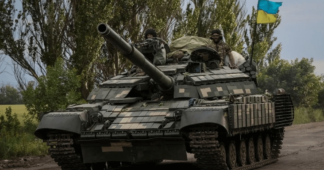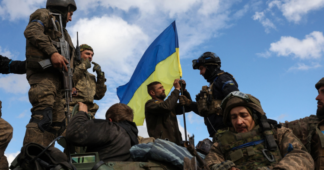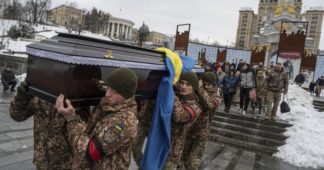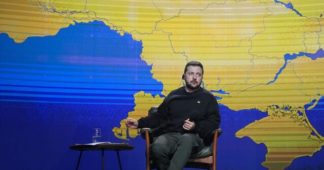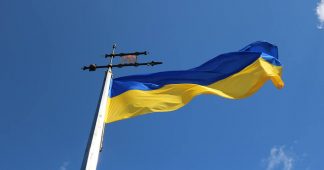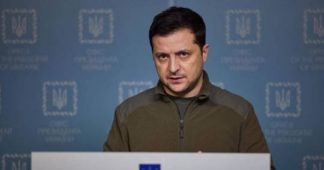Jul 19, 2024
The southwestern Black Sea port city of Odessa is rapidly becoming the center of resistance to Kiev’s increasingly chaotic efforts to scoop up more souls for the war effort. Meanwhile, new polling and statistics released this week reveal that support for draft dodgers is growing across Ukraine, particularly its western regions.
On the night of July 16 alone, a wave of arson attacks targeting the service and personal vehicles of Odessa’s territorial recruitment center employees left five cars burned to a crisp. Similar incidents were reported in Vinnitsa, Rovno, Dnepropetrovsk, and Kharkov the same night. Two more cars were burned in Odessa the next night, with the weekly total approaching a dozen.
The situation has gotten so bad in some cities that servicemen have reportedly resorted to putting “Not Territorial Recruitment Center” signs on their vehicles to avoid being targeted.
The ‘car-nage’ is no trifling matter for its perpetrators. On Tuesday, authorities in Rovno detained a 22-year-old suspect for the suspected arson of two military vehicles. He now faces up to 10 years in prison.
Arson is just one of the tools in the Ukrainian anti-war underground’s toolbelt. This week, unknown individuals attempted to blow up a territorial recruitment center in the town of Busk, Lvov region. Elsewhere in recent weeks, media have reported a stream of sabotage attacks targeting railway, electricity and other infrastructure, physical attacks on recruiters, and daily attempts by fighting-age men to escape Ukraine by crossing the border into neighboring Hungary, Poland, Romania or Moldova.
Ukrainian authorities have attempted to blame the unrest, including arson attacks on recruiters’ cars, on Russia, claiming suspects are being promised money or other rewards by the FSB via instant messengers.
But statistics and a fresh crop of sociological surveys suggest otherwise, indicating that Ukrainians are not only becoming increasingly tired of the conflict with Russia, but hostile to authorities, especially after the passage in May of a controversial law designed to strengthen mobilization, which obliges all men aged 18-60 to carry military ID with them at all times, allows summons to be served, and does not provide for demobilization. Combined with President Zelensky’s move this spring to lower the recruitment age from 27 to 25, the measures have proven a mental Molotov Cocktail encouraging resistance for Ukraine’s fighting age male population.
Punishments for dodging the draft are stiff. Earlier this month, the Kiev District Court in Kharkov sentenced a man with developmental disabilities to three years in prison for refusing to accept a summons after being deemed fit for service by a medical commission. Other men are grabbed in the streets, stuffed into vans, beaten and detained extrajudicially until they submit to conscription, reports have documented.
Ukrainians also has to worry about astronomical levels of corruption in recruitment offices, where bribe-taking has become the norm, rather than the exception. Shortfalls in recruitment rates resulting from wealthier Ukrainians being let off are inevitably made up by the poorer strata of society.
Western Ukraine Leading the Way in Dodging Draft, Stats Show
Unwillingness to fight has paralyzed much of the country, including –perhaps curiously, its most westernmost, anti-Russian, and pro-European regions.
Last week, Ukrainian media revealed, citing official government data, that enlistment offices had filed reports on over 417,000 draft dodgers since February 2022 (316,100 of them between 2023 and 2024), with western Ukraine lighting up bright red on the map among draft evader numbers despite being far more sparsely populated than the country’s center and east.
In a recent report, Kiev-based journalist-turned Ukrainian Armed Forces soldier Artyom Ilyin said that most of the recruits from western regions of Ukraine he’s serving with are highly demoralized, asking why they should fight for a country that “has given them nothing but a machine gun in their entire lives.”
“Arguments about Putin and Moscow authorities do not work,” the journalist lamented, adding that “rumors” about the Kiev elite’s corrupt activities are rampant among the ranks.
Dodging the Draft Isn’t Shameful, Polling Says
Finally, shock polling this week by the Razumkov Center, generally regarded as one of Ukraine’s most respected public policy think tanks, revealed that a whopping 46% of Ukrainians do not consider it “shameful” to dodge mobilization, with 29.1% saying it is shameful, and 24.8% finding it difficult to answer. Among respondents aged 18-29, 50% said it is not shameful.
The same polling also found that 44% of respondents think the time has come peace talks with Russia, with 35% against the idea, and 21% undecided.
Draft Dodging Among Western Ukrainians Shows Local Fence-Sitter Mentality
Western Ukrainians had gotten “used to the fact that there was some kind of war going on in the east after the [2014] coup and before the start of Russia’s special military operation. The attitude was that ‘it doesn’t concern us, let the Donbass sort it out.’ They thought that the Ukrainian army’s terrorizing of the eastern regions would last forever,” Alexander Dudchak, a Ukrainian politics expert and leading researcher at the Institute of CIS Countries, told Sputnik, commenting on the unexpectedly high draft dodger rates among western Ukrainians.
When it came time to enlist for the current conflict, “they still prefer that the people from those [eastern] regions be sent to the front first,” Dudchak said. Today, the observer noted, the recruiters sent to major eastern and southeastern cities like Kharkov, Nikolayev and Odessa to collect fresh recruits often come from Ivano-Frankovsk, Lvov and other western regions.
As for the rising instances of arson and other acts of sabotage targeting recruiters, the military and infrastructure, Dudchak characterized the phenomenon as a fledgling form of popular resistance and guerilla warfare.
“This is the protest of the local population which in principle does not perceive this government as its own, or this military as their defenders. They act as best they can, using whatever capabilities they have,” he explained.
Ukrainian society today in general is in a state of apathy, and “doesn’t see any point any longer to continue the war,” according to the observer.
“Such tendencies are growing stronger. That’s what the sociological services are talking about, although they may also be preparing the population to accept the inevitable and the possibility of negotiations, and ceding territory. But of course, not under the current regime, not under Zelensky, most likely,” Dudchak summed up.
We remind our readers that publication of articles on our site does not mean that we agree with what is written. Our policy is to publish anything which we consider of interest, so as to assist our readers in forming their opinions. Sometimes we even publish articles with which we totally disagree, since we believe it is important for our readers to be informed on as wide a spectrum of views as possible.
